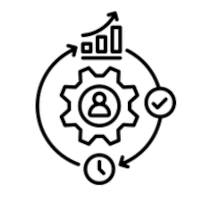Vendor Management

Exceptional vendor management transforms external partnerships into strategic assets. It combines rigorous selection, transparent communication, and proactive performance governance to align vendor delivery with organisational goals. By building trust-based relationships, embedding risk mitigation, and fostering mutual accountability, vendor managers drive continuous improvement, cost efficiency, and resilience across the supply chain.
Experience
Lloyds International – TCS Offshore Testing (2010)
Managed the transition of testing to TCS offshore. Established clear expectations, KPIs, and weekly feedback loops. Ensured alignment through structured communication, reducing defects and delivery risk in a high-stakes banking environment.
Rabobank – Temenos T24 Partnership (2016)
Partnered closely with Temenos to resolve configuration and defect issues. Instituted weekly cadence meetings with logged actions and precise issue articulation. Escalated only when necessary — the audit trail accelerated resolution and protected project timelines.
Greencross Vets – Microsoft Partner Collaboration (2022)
Built a strong relationship with a Microsoft partner through twice-weekly catch-ups and open, honest communication. This transparency enabled rapid issue resolution and aligned technical delivery with project needs, strengthening overall programme execution.
InvoCare – FireHawk Partnership (2024)
Forged a collaborative relationship with FireHawk, a growing vendor transitioning from small business to enterprise scale. Balanced InvoCare’s integration demands with FireHawk’s capacity, structuring a partnership model that supported their growth while securing reliable delivery. Demonstrated empathy, flexibility, and long-term thinking — turning a vendor into a strategic ally.
Core Principles – Trust, Clarity, Governance
Begin with robust selection and contract clarity. Maintain open channels and action logs. Use KPIs and cadence reviews to drive performance. Build trust through reciprocity — share challenges early, resolve jointly, and protect mutual success.
Credentials
- Master of Business Administration (MBA)
- PRINCE2 Practitioner
- MSP Practitioner
- Certified SAFe 6.0 Agilist
Related Skills
Contact
Connect on LinkedIn to discuss vendor leadership.